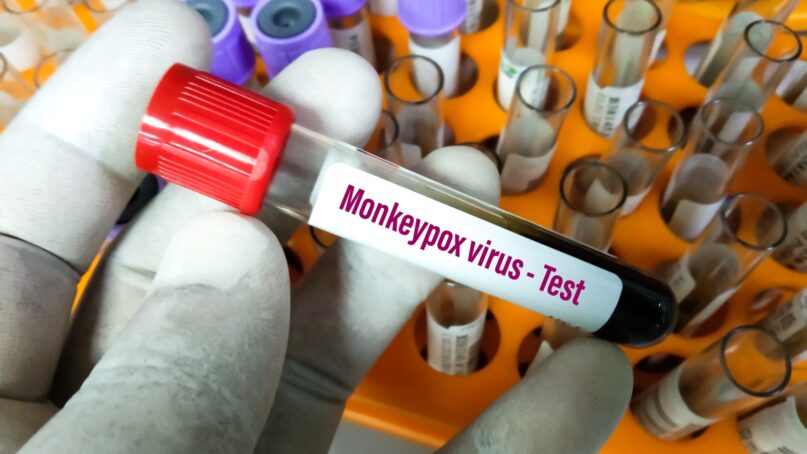
By Abigail Klein Leichman
(ISRAEL2C)—Here’s some hopeful news for everyone dreading another pandemic before we’ve gotten over the first one: Monkeypox won’t cause a pandemic of Covid-19 proportions.
“At present, we don’t see evidence showing monkeypox will affect as many people as Covid affected, primarily because it’s simply less transmissible,” says Dr. Eyal Leshem, director of the Center of Geographic Medicine and Tropical Diseases at Sheba Medical Center and clinical associate professor of internal medicine and infectious diseases at Tel Aviv University’s medical school.
“To get infected with monkeypox, close contact is necessary — contrary to Covid, where airborne infection is not uncommon,” Leshem tells ISRAEL21c.
Still, monkeypox infections are spreading widely, prompting the World Health Organization (WHO) to declare a global emergency on July 23.
As of August 3, the U.S. Centers for Disease Control mapped more than 26,000 reported monkeypox cases in 87 countries. In the United States, the number is climbing close to 7,000 confirmed cases.
While the majority of monkeypox infections have struck men with male sexual partners, “Most professionals think there is high likelihood monkeypox will spread to other populations and will become a bigger public health problem,” says Dr. Hagai Levine, chairman of the Israeli Association of Public Health Physicians and a professor of epidemiology at the Hebrew University-Hadassah School of Public Health.
“But it’s very hard to imagine it will reach the magnitude of Covid,” he adds.
Fast response
Although Israel reported just 160 confirmed cases as of August 4, the response has been fast, as it was when Israel led the world in the rollout of Covid vaccines in December 2020.
On July 27, Israel received its first shipment of 5,600 monkeypox vaccines, FDA-approved preventatively for ages 18 and up and in some cases for adults already exposed to the virus.
Priority is being given to HIV-positive men born after 1980 (the year Israel stopped vaccinating kids against the related, virtually extinct smallpox) and to anyone who tested positive for a sexually transmitted infection (STI) in 2022.
“Israel is very good in responding quickly to emergencies,” says Levine. “Our advantage is that we are small, so we have good collaboration between the medical community and different community organizations.”
MAIN PHOTO: Dr. Hagai Levine, epidemiologist of the Hebrew University-Hadassah School of Public Health and chairman of the Israeli Association of Public Health Physicians.








 Southern New England Jewish Ledger
Southern New England Jewish Ledger










